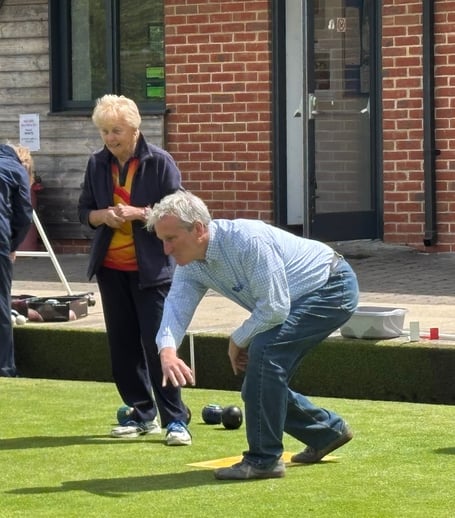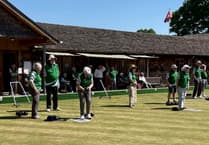The Bowls’ Big Weekend came to Alton last weekend and it was the perfect excuse to spend time on a sunny Sunday afternoon at the excellent Alton Social Bowling Club.
There are many greens and clubs across East Hampshire with three alone in Alton.
Alton Social, established in the 1950s, used to be at what was the Coors Ground but is now by the sports centre, next to Chawton Park Indoor Bowling Club. It benefits from a modern clubhouse as well as six beautifully maintained ‘rinks’.
My visit was part of a taster session, organised by Bowls England, as part of a national campaign to encourage more people to give the sport a try. More than 800 clubs across the country opened their doors for the weekend to highlight the many benefits of bowls.
And there are many.
Beyond being great fun and accessible for all ages – and definitely not just for older people – bowls helps keep you physically active and mentally engaged.
It's also highly social and has huge potential in the area of ‘social prescribing’ (where GPs suggest physical activity as treatment).
While it’s not just for older people, although Alton includes members who are very far from that bracket, it is also true that it is a sport you can continue with longer than you can some others.
At Alton Social I met both highly accomplished sports players and distinctly social players. But the club and camaraderie are alike for all.
My interest was piqued by meeting Jon Cockcroft, chief executive of Bowls England, at a recent evidence session on community sport as part of my work with the Culture, Media and Sport Select Committee.
During the session, he aptly summed up bowls when he said: “We add life to years and years to life.”
After a period of decline, bowls is once again growing in popularity, thanks in part to its low cost and wide accessibility and availability.
Bowls England are modernising the game to attract new generations of players. The Bowls Bash, a short form of the game, relaxing the dress code, and introducing easy ways to book slots on the green through ‘pay and play’ platforms are just some of the initiatives introduced to open up bowls to a wider audience.
The ‘Bowl for Health’ pilot, which is an eight-week programme for people with chronic illnesses, is already proving successful with 70 per cent of those completing the course continuing to play bowls afterwards.
Bowls England believes it could do much more if given a fairer share of national sports investment.
Bowls is inclusive, accessible, and beneficial in so many ways. With the right support, it could be an even bigger part of the solution to improving community wellbeing, reducing isolation, and encouraging physical activity, for everyone.







Comments
This article has no comments yet. Be the first to leave a comment.